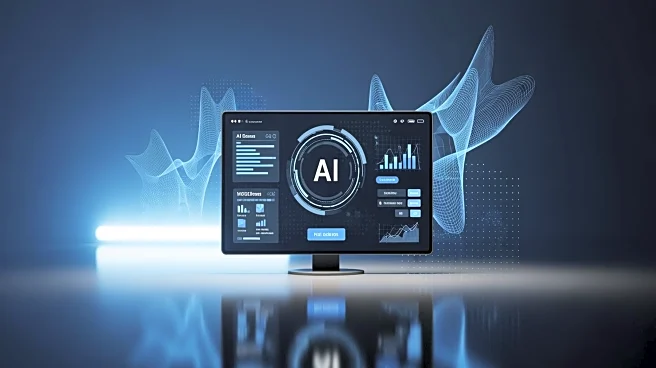What's Happening?
Recent research conducted by Kognitiv, a Workday services partner consultancy, highlights a significant demand among HR leaders for better integration of AI within consultancies. The study surveyed 500
HR decision makers in the UK and Germany, revealing that 80% of UK HR leaders want consultancies to enhance their AI capabilities. Additionally, 44% believe consultancies have been slow to adopt AI technology. The report, titled 'The New Age of Consulting,' indicates a growing dissatisfaction with traditional consultancy models, with 46% of UK HR leaders suggesting AI could replace much of the work done by consultants. Furthermore, 70% have already reduced consultancy spending in favor of AI solutions.
Why It's Important?
The findings underscore a pivotal shift in the HR consultancy landscape, driven by the increasing capabilities of AI. As HR leaders express a preference for AI-driven solutions, consultancies face pressure to adapt or risk losing relevance. This transition could lead to more efficient and cost-effective HR processes, benefiting organizations that embrace AI. However, it also poses challenges for traditional consultancies, which must innovate to meet evolving client expectations. The integration of AI promises to streamline operations, reduce costs, and enhance decision-making, potentially transforming the consultancy industry.
What's Next?
HR leaders anticipate a future where AI and human expertise coexist, with 59% expecting consultancies to blend AI with human oversight. This suggests a shift towards hybrid models that leverage AI for efficiency while maintaining human input for strategic guidance. Consultancies that fail to adapt may face declining demand, as organizations increasingly prioritize AI-driven solutions. The report calls for consultancies to address pain points such as cost transparency and service flexibility, which could further drive the adoption of AI in HR processes.
Beyond the Headlines
The report introduces the concept of 'Complexity Tax,' highlighting hidden costs associated with traditional consultancy models. This tax, resulting from inefficiencies and outdated systems, drives organizations towards AI as a more agile alternative. The shift towards AI not only impacts consultancy practices but also reflects broader trends in digital transformation across industries. As AI continues to evolve, it may redefine the roles of consultants, emphasizing the need for continuous adaptation and innovation.









